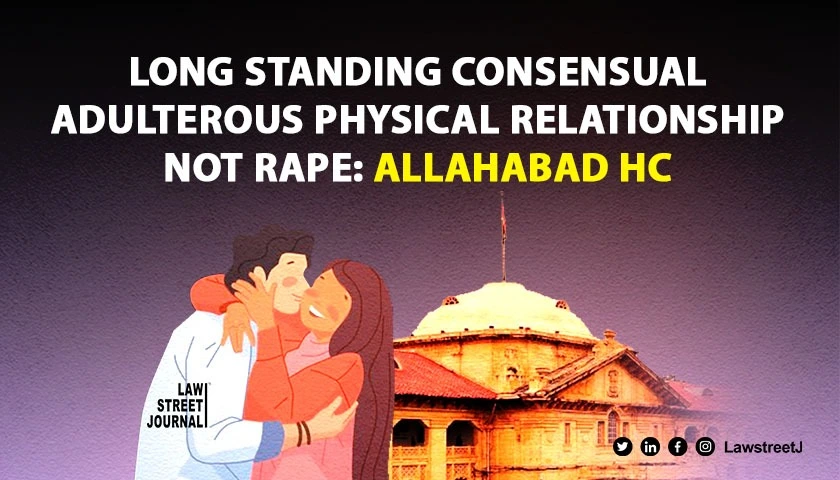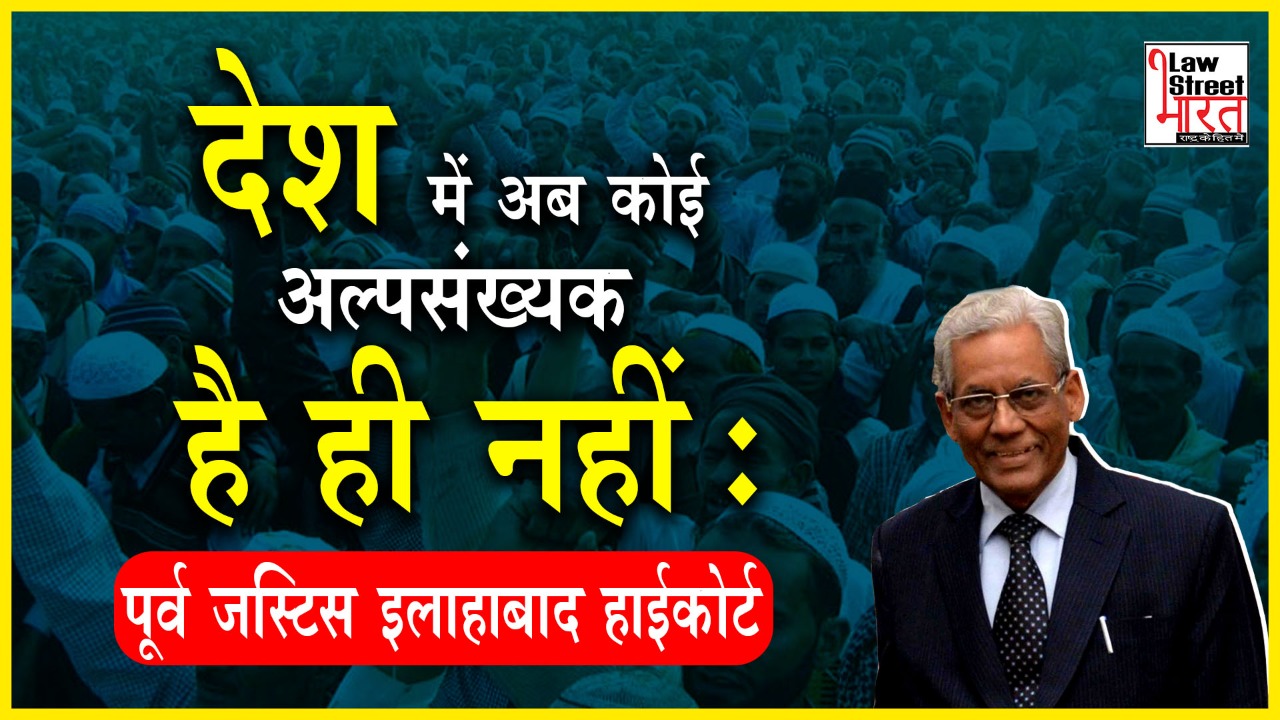Prayagraj: The Allahabad High Court quashed rape and extortion charges against a man, observing that his long-standing consensual physical relationship with a widow does not amount to rape.
Court Rules Consensual Adulterous Relationship Does Not Constitute Rape
The Single-Bench of Justice Anish Kumar Gupta held that a consensual relationship spanning 12–13 years, without any element of coercion or false promise of marriage from the outset, cannot be construed as rape.
The Court clarified that not every promise of marriage turns consensual intercourse into rape unless it is proven that the promise was false from the beginning.
"Each and every promise of marriage would not be considered a fact of misconception for the purpose of consensual sexual intercourse unless it is established that such promise of marriage was a false promise since the beginning of such a relationship," the Court said.
Extortion Charges Quashed; No Evidence of Forcible Rape
The case originated from a complaint by a widow who alleged that Gupta, who had a consensual relationship with her after the death of her husband, had promised to marry her but later got engaged to another woman. She also accused him of extortion, claiming Gupta demanded Rs. 50 lakh to suppress a video of their intimate encounters. The trial court had taken cognizance of offences under Section 376 (rape) and Section 386 (extortion) of the IPC.
Justice Anish Kumar Gupta issued the order on October 1, 2024, in response to an application under Section 482 Cr.P.C. seeking the quashing of the charge-sheet and criminal proceedings in a case registered under Sections 376 and 386 of the I.P.C.
The court noted that the relationship between the accused and the complainant spanned over 12-13 years, during which they had a consensual physical relationship. The court observed, “From the facts of the case, it is apparent that the prosecutrix had allured the applicant herein due to his subordination, as he was financially dependent on the family of the prosecutrix.”
The complainant, a married woman with two grown-up children, entered into a physical relationship with the accused while her husband was alive but ill. The relationship continued for 12-13 years without any element of deception from its inception.
The court found that the complainant was in a dominant position over the accused. No evidence was found to support the allegation of forcible rape on January 17, 2018. The medical examination conducted on March 26, 2018, found no definite evidence of rape.
Justice Gupta emphasized, “Therefore, this Court is of the considered opinion that in the instant case, no offence of rape is made out against the applicant herein, and the instant F.I.R. has been lodged by the prosecutrix out of annoyance with regard to the applicant’s engagement with another lady.”
The court observed that every promise of marriage would not be considered as a fact of misconception for consensual sexual intercourse unless it was established that such promise of marriage was false since the beginning of such relationship.
"Unless it is alleged that from the very beginning of such relationship, there was some element of cheating on the part of the accused while making such promise, it would not be treated as a false promise of marriage," the court observed.
To address these issues, the court quashed the entire proceedings of the charge-sheet dated August 9, 2018, in S.T. No. 826 of 2018, as well as the entire criminal proceedings in Case Crime No. 59 of 2018, under Sections 376 and 386 of the I.P.C., Police Station Mahila Thana, District Moradabad, pending in the Court of the Sessions Judge, Moradabad.
The court also examined the legal definition of rape under Section 375 of the IPC, which emphasizes that for an act to constitute rape, the woman's consent must be obtained through coercion, threats or under a misconception of fact.
“Under Section 375 I.P.C., the consent needs the voluntary participation of the prosecutrix in the physical relationship with the accused. The consent of such physical relationship would only be vitiated when it was given under some misconception of fact or under fear of injury to the victim or any person in whom the victim was interested,” the Court said.
Referring to the Supreme Court’s ruling in Naim Ahamed v. State of Haryana, the High Court reiterated that it would be a folly to treat every breach of promise to marry as a false promise and to prosecute a person for the offence of rape under Section 376 IPC.
Senior Advocate VP Srivastava along with advocates Vijit Saxena and Irfan Hasan appeared on behalf of the accused.
Advocate Jagdev Singh represented the alleged victim, while Additional Government Advocate Mohd. Shoaib Khan appeared for the State.
In conclusion, the High Court has set a precedent by emphasizing the importance of considering the nature and duration of relationships in allegations of rape, particularly when there is evidence of long-standing consensual involvement.







!["No Loudspeakers For Azan, No Fundamental Right To Create Noise," Says Allahabad HC To Two Mosques [Read Judgment]](/secure/uploads/2020/01/lj_4995_Allahabad_HC_AZAN.jpg)








